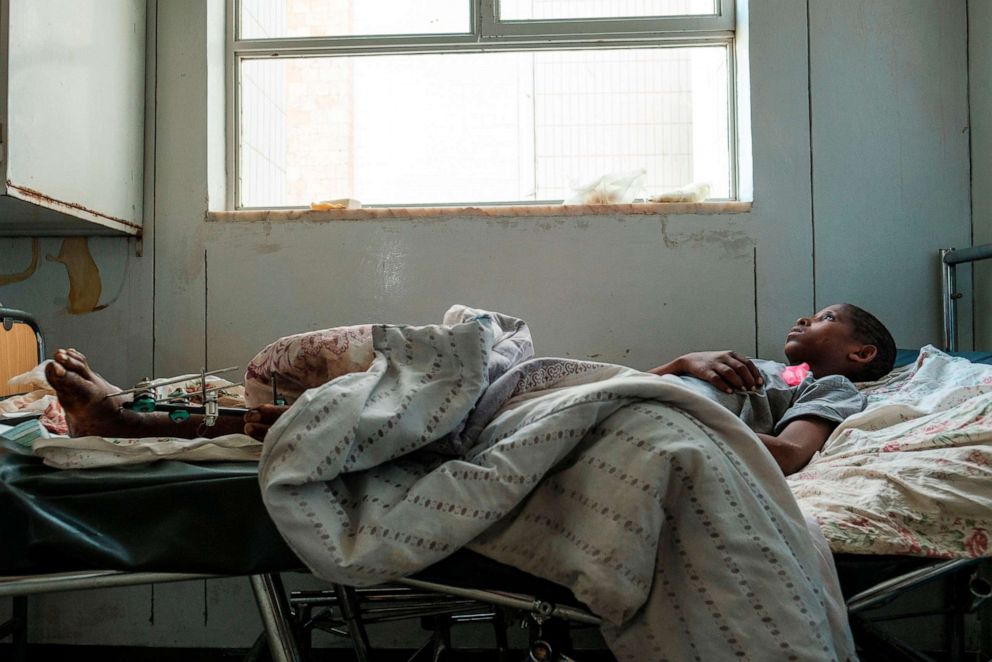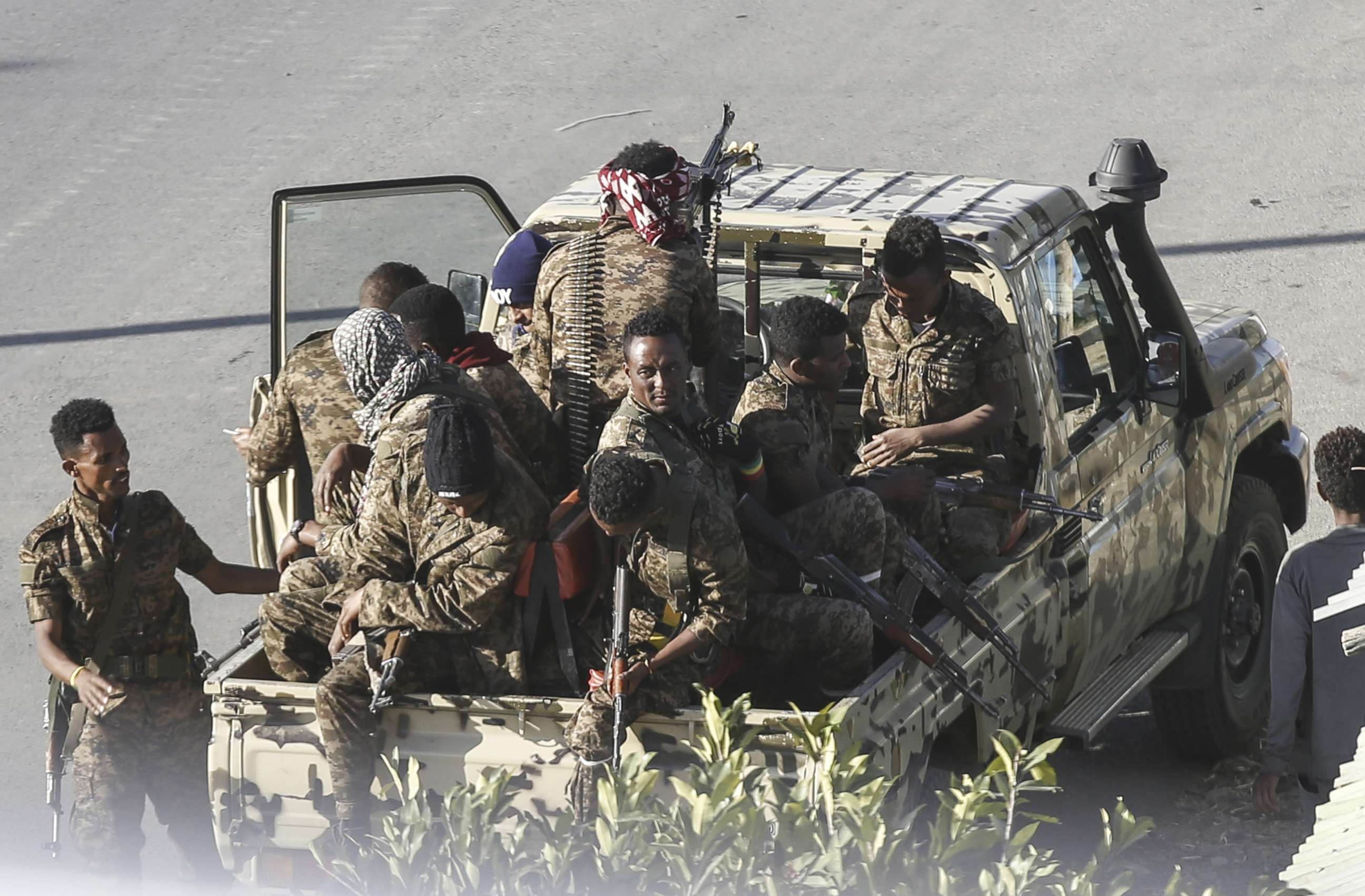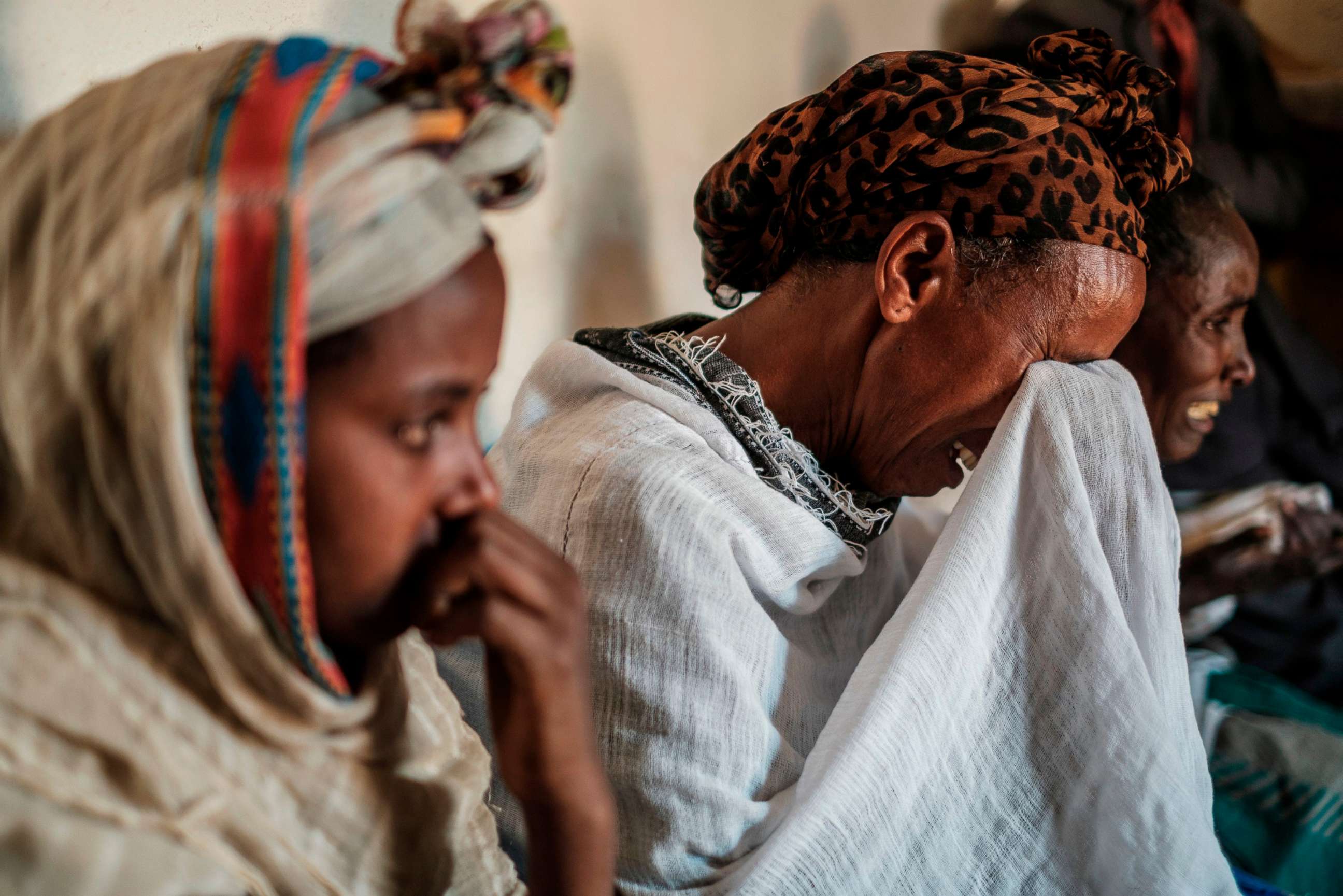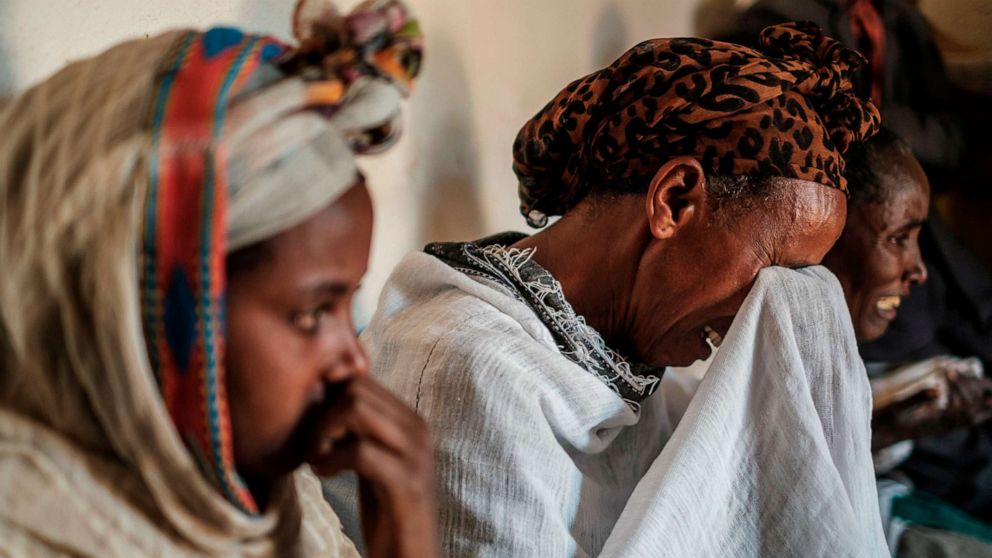US restricting visas, aid over conflict in Ethiopia's Tigray region
LONDON -- The United States is now restricting visas for those accused of fueling the grinding war in Ethiopia's Tigray region.
"Despite significant diplomatic engagement, the parties to the conflict in Tigray have taken no meaningful steps to end hostilities or pursue a peaceful resolution of the political crisis," U.S. Secretary of State Antony Blinken said in a statement Sunday. "The time for action from the international community is now."
Thousands of people are estimated to have died while more than 1 million others are displaced since fighting erupted almost seven months ago between federal troops and rebellious regional forces in Tigray, the northernmost region of Ethiopia. Both sides have been accused of committing atrocities against civilians, with reports of extrajudicial killings, rape and forced evictions.
Last week, the U.S. Senate passed a resolution condemning "all violence against civilians" in Tigray and calling for the withdrawal of troops from neighboring Eritrea, which joined the fight in support of Ethiopian forces. In March, Blinken used the term "ethnic cleansing" for the first time to describe the "very credible reports of human rights abuses and atrocities" that he said have been carried out in the western Tigray area.

In his statement on Sunday, Blinken warned that Tigray could face famine if there is not "an immediate cessation of hostilities and a rapid expansion of humanitarian access."
"People in Tigray continue to suffer human rights violations, abuses, and atrocities, and urgently needed humanitarian relief is being blocked by the Ethiopian and Eritrean militaries as well as other armed actors," he said. "We are equally appalled by the destruction of civilian property including water sources, hospitals, and medical facilities, taking place in Tigray. We call on the Ethiopian government to meet public commitments to hold accountable all those responsible for human rights violations and abuses, to protect civilians, and to ensure unhindered humanitarian access. We call for the Eritrean government to live up to its public commitment and immediately return its troops to internationally recognized Eritrean territory."
Blinken said the new visa restriction policy applies to "any current or former Ethiopian or Eritrean government officials, members of the security forces, or other individuals -- to include Amhara regional and irregular forces and members of the Tigray People’s Liberation Front (TPLF) -- responsible for, or complicit in, undermining resolution of the crisis in Tigray."
"This includes those who have conducted wrongful violence or other abuses against people in the Tigray region of Ethiopia, as well as those who have hindered access of humanitarian assistance to those in the region," he added. "Immediate family members of such persons may also be subject to these restrictions. Should those responsible for undermining a resolution of the crisis in Tigray fail to reverse course, they should anticipate further actions from the United States and the international community. We call on other governments to join us in taking these actions."

Blinken also announced "wide-ranging restrictions on economic and security assistance to Ethiopia" and said the U.S. government would bring its defense trade control policy in line with the curbs. Ethiopia was the largest recipient of U.S. foreign aid in Africa last year, receiving nearly $1 billion, according to U.S. government data.
"We will continue humanitarian assistance and certain other critical aid to Ethiopia in areas such as health, food security, basic education, support for women and girls, human rights and democracy, good governance, and conflict mitigation, consistent with available authorities," he noted. "The United States will continue its existing broad restrictions on assistance to Eritrea."
The deadly conflict began in early November when Ethiopian Prime Minister Abiy Ahmed launched a military offensive against the TPLF, a powerful, ethnically based political party that played a key role in freeing Ethiopia from the Soviet-backed military junta known as the Derg in 1991 and then dominated the country's federal government for almost 30 years -- until Abiy came to power in 2018. Abiy, who won the Nobel Peace Prize in 2019, alleged that forces loyal to TPLF had attacked the headquarters of the Ethiopian military's Northern Command in Tigray's regional capital, Mekelle. The prime minister's cabinet declared a six-month state of emergency in Tigray and ordered airstrikes that knocked out the region's electricity grid for weeks, along with telephone and internet services.

The offensive was the culmination of escalating tensions between Abiy and the TPLF, which had lost its stranglehold on central power when the prime minister merged Ethiopia's governing coalition into a single party in 2019 in an effort to distance the country's politics from ethno-federalism. The TPLF, which represents a small minority in Ethiopia's more than 90 ethnic groups, did not join the new party but still controlled Tigray's regional government and security forces. Tensions apparently came to a head when Tigray held its parliamentary elections last September, despite the federal government postponing general elections and extending its mandate due to the coronavirus pandemic. Abiy deemed the polls in Tigray illegal, while the TPLF argued that the prime minister's leadership was illegitimate.
Ethiopian troops swiftly ousted the TPLF from major cities and towns in Tigray last year, but the United Nations said violence and fighting has continued unabated while most rural areas have remained cut off from communications and electricity, impacting access to health services, water supply and vital assistance.
In addition to Eritrean troops, militias from neighboring regions in Ethiopia have joined the fray in Tigray. The United Nations said war crimes may have been carried out by all parties involved in the conflict.
Ethiopia's federal government has said it is committed to investigating human rights violations in Tigray, while the Eritrean government has promised to withdraw its allied troops from the region.




